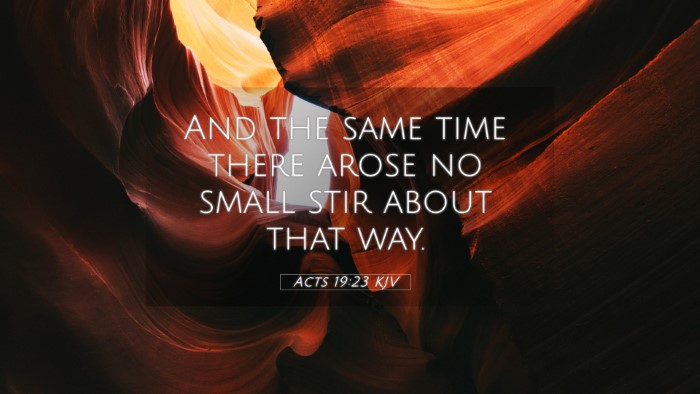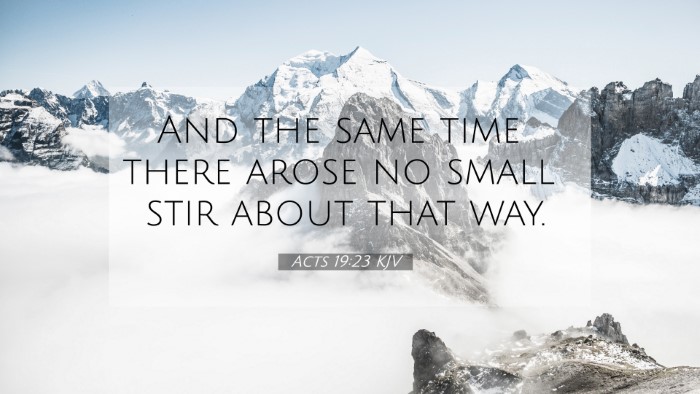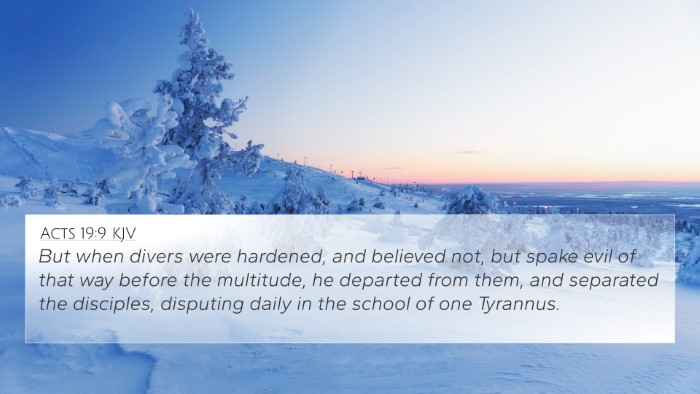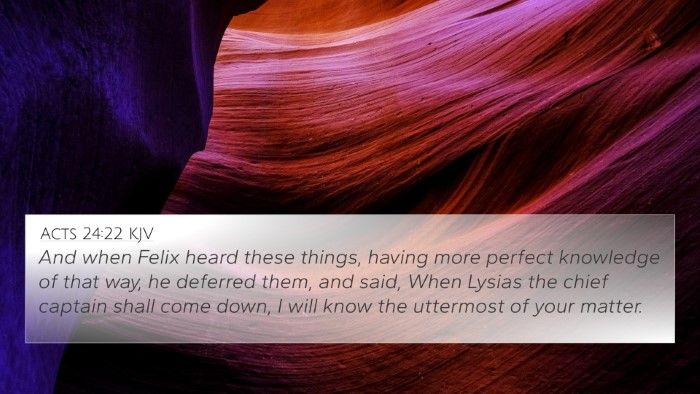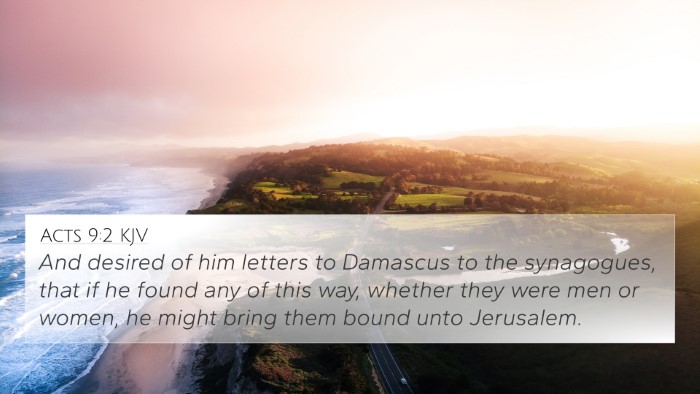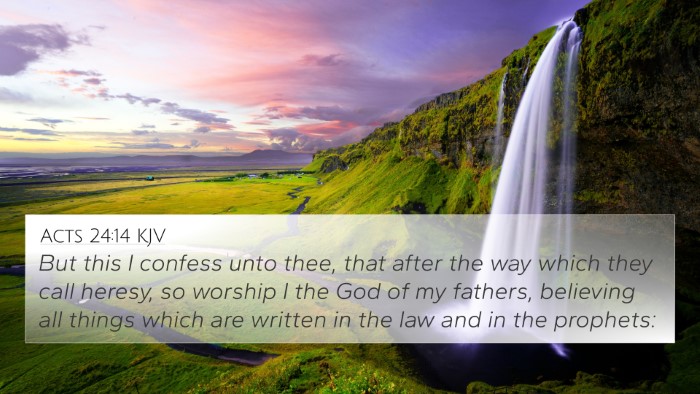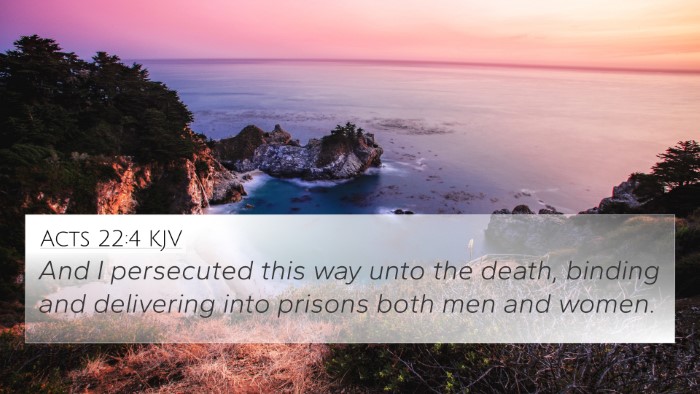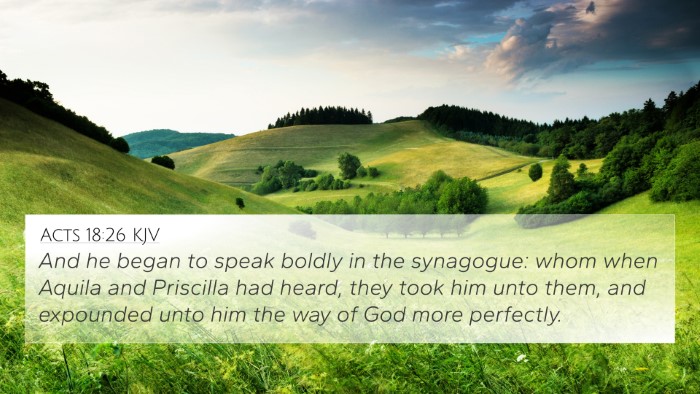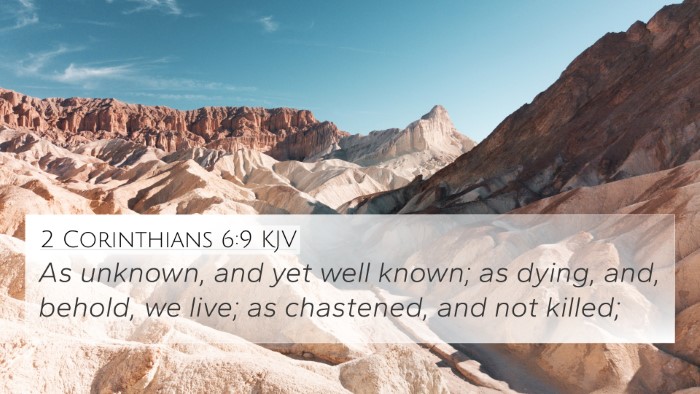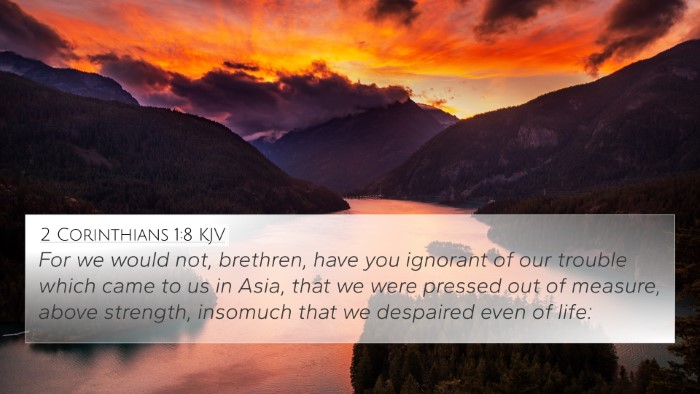Understanding Acts 19:23
In Acts 19:23, we find a considerable disturbance arising in Ephesus due to Paul's ministry, as it challenged the influence of the local cult and economy. This scripture serves as a pivotal moment highlighting the intersection of faith, commerce, and social unrest in the early church.
As we explore the meaning of this verse, we gather insights from several public domain commentaries, chiefly from Matthew Henry, Albert Barnes, and Adam Clarke. Their interpretations shed light on the implications of this passage and its connections to wider Biblical narratives.
Context of Acts 19:23
Acts 19 recounts Paul’s time in Ephesus, a city known for its idolatry centered around the goddess Diana. The apostle's powerful preaching not only converts many but also disrupts the trade related to idol-making, leading to significant pushback from local craftsmen.
Key Insights from Commentaries
-
Matthew Henry: He emphasizes the influence of the gospel on societal structures and commerce, showing it as a formidable force against idolatry. Henry notes that the uproar against Paul indicates how deeply entrenched idolatry had become, and how the truth of the gospel could lead to upheaval.
-
Albert Barnes: Barnes points out that this disturbance was not merely a riot but a response to financial threats posed by Paul's ministry. He describes the contrast between the spiritual truth and the material losses faced by idol makers, illustrating the conflict between divine truth and worldly gain.
-
Adam Clarke: Clarke offers a detailed linguistic and historical perspective on the term "disturbance." He connects this unrest to themes of spiritual awakening that often lead to societal conflict, reflecting the notion that genuine transformation can disrupt established norms, including economy and religion.
Bible Verse Cross-References
Acts 19:23 can be linked to several relevant scriptures that enhance our understanding of the themes of conflict arising from spiritual truths. The following cross-references illustrate these connections:
- Acts 16:19: This verse depicts the uproar caused in Philippi due to Paul casting out a spirit of divination, echoing the clash between the gospel and local economies based on false worship.
- 1 Corinthians 10:14-22: Paul warns against idolatry, linking back to the disruption in Ephesus, reinforcing the dangers of participating in the culture of idol worship.
- 2 Corinthians 5:17: Reminds believers that in Christ they are a new creation, indicating the transformative power of the gospel that can alter social landscapes.
- Romans 12:2: Encourages believers not to conform to the patterns of this world, reflecting the need to reject local idolatrous practices that were economically beneficial but spiritually harmful.
- Matthew 10:34-36: Jesus forewarned that His coming would bring division, highlighting the potential for conflict in life when one follows His teachings in contrast to prevailing societal beliefs.
- Acts 19:26: Paul is directly accused of turning many away from the worship of Diana, showcasing the direct confrontation between the culture of the day and the message of the gospel.
- Hebrews 13:5: This verse assures believers of God's provision, which challenges the economic fear reflected in the tumult of Acts 19:23.
Thematic Connections
The events unfolding in Acts 19:23 represent a significant theme within the New Testament: the conflict between the gospel and established societal norms. As believers engage with their communities, the gospel can provoke a response—both acceptance and opposition.
This theme invites deeper study into how early Christians navigated their faith within a culture anchored in idolatry and materialism. Such explorations can draw on tools for Bible cross-referencing, utilizing resources like Bible concordances to uncover further connections across the text.
Using Tools for Bible Cross-Referencing
To explore these connections thoroughly, one can utilize various tools and guides for Bible cross-referencing:
- Bible Concordance: A valuable resource for locating specific verses and their related texts.
- Cross-Reference Bible Study: Engaging in a study that connects verses thematically or contextually.
- Bible Reference Resources: Utilizing study Bibles that include notes and cross-references directly in their pages.
- Comprehensive Bible Cross-Reference Materials: Collections or databases that provide extensive linking of Bible verses.
Conclusion
Acts 19:23 serves as a critical reminder of the spiritual conflict that can arise when truth confronts established systems of idolatry and commerce. Through the insights of respected commentators and a strategic approach to cross-referencing, believers can deepen their understanding of scripture while navigating the complexities of faith in a challenging world.
By effectively utilizing tools for Bible cross-referencing, one can enhance their study and understanding of not just this passage, but the rich tapestry of connections within the Scriptures. The inter-Biblical dialogue demonstrates how one verse can greatly illuminate others, fortifying the believer’s faith and understanding.

